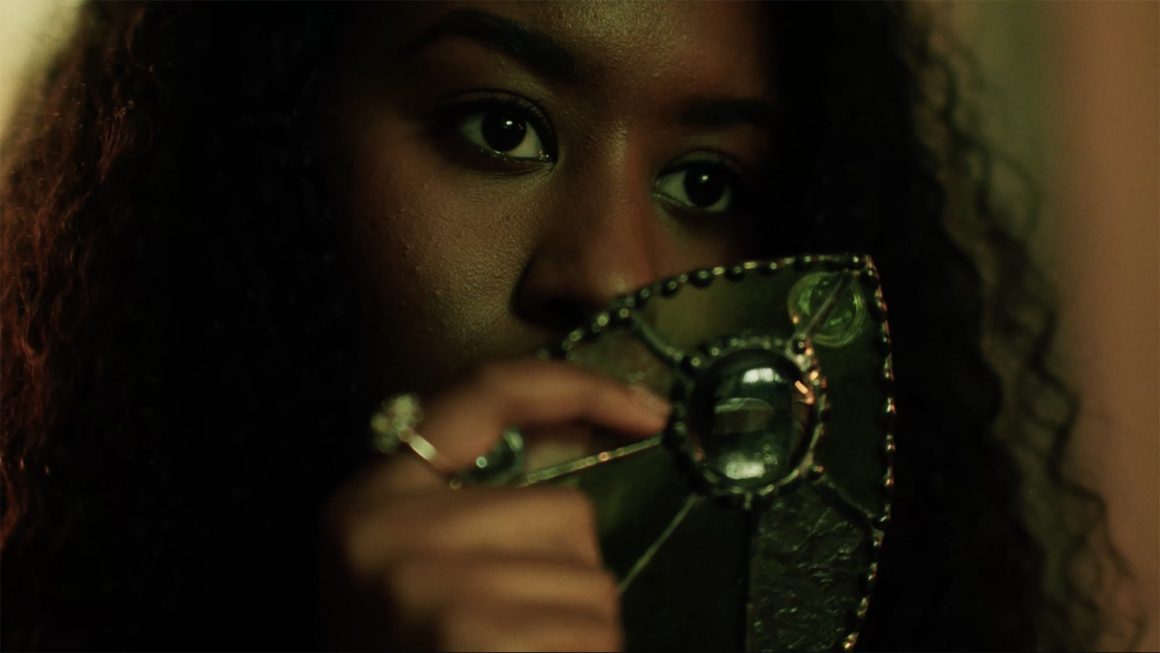
CIFF 2022: A peek into Rebecca’s Room with director Gillian McKercher
By Amanda Wilson, September 23 2022—
The annual Calgary International Film Festival (CIFF) is stacked with highly anticipated films, and is prepared to showcase Calgary’s finest filmmakers. Premiering on Sept. 25 is Shorts: Alberta Spirit #1, and a film to look out for within the series is Rebecca’s Room directed by Gillian McKercher. The 15-minute short explores three friends attempting to perform a ritual to communicate with their friend who had recently committed suicide — but it also asks the audience, how should one feel and approach grief?
Death and grief are inevitable facets of life that deliver immense pain and ambiguity. In the short Rebecca’s Room, McKercher explores how we react to death and what we would do for another chance to speak with our loved ones. The inspiration for Rebecca’s Room had been inspired by McKercher and her family’s experiences in dealing with young and unexpected death.
“I was just interested in young death and how it can bring young people together in a very unique way, because you haven’t experienced a lot of things yet,” said McKercher. “There was a lot of potential there and a lot of things that we had hoped for them.”
Rebecca’s Room explores an approach in how those that are grieving may romanticise death — to the point where we idolize the dead and in-turn dehumanise their life experience by forgetting their flaws. McKercher emphasises that death and processing the event is an extremely personal and complex process.
Rebecca’s Room is a revival in itself, as the idea for the film was originally pitched in 2016 but was shelved due to a lack of funding. Nonetheless, the idea for the film stuck with McKercher and in time was made stronger when she was able to compile a team to enhance the script, and successfully bring the vision into fruition. Rebecca’s Room is now proudly a part of the Kino Sum Productions catalogue, founded by McKercher, Guillaume Carlier and Nicola Waugh.
McKercher had explained that when she was introduced to University of Calgary student and writer Shae Kubur, the story underwent a readaption to work with three female friends. While writing with Kubur to indepthly build the characters, they had felt that it was important to write multi-dimensional characters that could be played by anyone — but placing women of colour as the lead actors is a triumph for representation. McKercher had also described that one of her proudest points of the film’s production was being able to incorporate her values of empowering women and people of colour in the film industry.
When reflecting on the production, McKercher had said, “I’m really proud of everyone. It was just a lot of friends coming together to make it a really special piece.”
When asked about what she hopes that the audience takes away from the film, McKercher had emphasised that grieving comes with a subtle and nuanced type feeling that may be rooted in yearning and hope. How we may make amends with ourselves may be by attempting to communicate with and find solace in the presence that the dead have left.
“Desire to be connected with someone afterwards is something which everyone will want to do, but there’s no certainty that anything will come of it. I think it’s one of those things where everyone will be searching for somethin,” McKercher explained. “But will you find the thing that you’re searching for? Possibly not. And it’s a weird feeling.”
What happens after death has been a debate as old as time. Nonetheless, death is certain and final. Rebecca’s Room will surely be an evocative and introspective film that should not be missed. Watch Rebecca’s Room at CIFF on Sept. 25, and available to be streamed on September 26. Tickets are available on the CIFF website.
